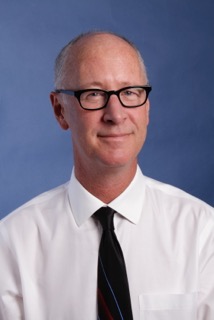|
Donald Brown, ND, may self-deprecatingly
and laughingly describe himself as an “old, failing bald guy,” but his career
seems to refute at least the “failing” part. The Seattle-based naturopathic medicine
and herbal expert has served on the American Botanical Council’s (ABC’s)
Advisory Board since its inception in 1996.
Brown, who formerly specialized in pediatrics, is a well-trusted authority on
the safety and efficacy of dietary supplements, herbal medicines, and
probiotics (beneficial live bacteria and yeasts). He is the director of Natural
Product Research Consultants (NPRC), which he founded in 1990.
“Professionally, I’ve always been someone that has looked at evidence-based,
natural solutions to health care and pride myself in being very thorough in my
reviews and my opinions on alternative health care,” Brown said (oral
communication, August 31, 2015).
Brown has always had an interest in integrative healing. He remembers being
intrigued by the books on herbal medicine his mother kept around the house. “I
was originally interested in psychology. I was always interested in healing
traditions in different cultures,” he said.
At Bastyr University, where he completed his Doctor of Naturopathic Medicine
degree in 1988, Brown became interested in ways to integrate natural medicine
with mainstream medicine. “We have a lot of conditions, either chronic
conditions or even some acute conditions, where there are not suitable or no
mainstream treatments,” he said. In cases like these, he likes finding ways to
incorporate herbs, vitamins and minerals, probiotics, additional nutrients, and
nutritional therapies to help complement mainstream medicine or compensate for
its shortcomings.
Brown said he is particularly proud of a publication he founded, the
now-defunct Quarterly Review of Natural
Medicine. He served as the publication’s editor-in-chief from 1994 to 1998.
“I have medical doctors that I run into who are academic opinion leaders in the
area of integrative medicine who’ve told me that that publication was very
influential and something that was sort of a go-to reference for them, so…I’m
very proud of that,” he said. He also is glad he has been able to influence
other naturopathic practitioners through his lecturing, including his classes
in therapeutic nutrition at Bastyr University.
“Back in the early 1990s, Don was one of the first health professionals in the
United States who was not only deeply familiar with the growing body of herbal
clinical research coming out of Europe, but who also shared and promoted this
clinical documentation of phytomedicines with students and other health
professionals,” said Mark Blumenthal, founder and executive director of ABC.
“That is one of the reasons why we invited him to join our Advisory Board when
it first was being developed.”
In his consulting work, Brown helps commercial clients with everything from
regulatory affairs to evaluating potential new ingredients, whether herbal,
probiotic, or other natural products. He enjoys being able to act as a guide
for companies when they communicate with healthcare professionals and consumers
about the clinically-documented benefits of new ingredients.
“It’s always gratifying to see a process that goes through various steps that
results in something coming out to the public that I feel good about, not only
the effectiveness or the efficacy, but also the safety of the ingredient,” he
said.
Brown said the field of naturopathic medicine has changed since he started out.
“First of all, the students are a lot smarter than I was,” he said, adding that
Bastyr has become much more competitive. He also said naturopathic practitioners
are much more respected now and have greater opportunities and influence.
Today, naturopathic doctors can be found serving on US National Institutes of
Health (NIH) committees, leading the Council for Responsible Nutrition (CRN),
working as consultants for pharmaceutical companies, speaking at prestigious
natural medicine conferences, teaching at universities, and in many other
roles.
“It’s better now, but there are still challenges,” he said. For example,
naturopathic medicine is not licensed in every state in the US. Where it is licensed,
the scope of practice is more limited than if one had a conventional medical degree
(MD). Also, Brown said he’d like to see naturopathic practitioners have more
opportunities to see a wider scope of diseases through internships and
residencies before they get their licenses and start practicing.
In addition, Brown said he thinks people should be aware that naturopathic
practitioners can act as primary care physicians and can sometimes offer
one-stop shopping. He thinks they can perform some of the services that family
doctors do, but also add in the element of using modalities like herbal
therapy, homeopathy, and nutritional therapies where and when appropriate.
Currently, Brown has a big passion for probiotics and how they provide a
variety of health benefits, including for the digestive and immune systems. “I
think that’s a really cool area, and it’s an area that’s kind of fun because
modern science is finding out what this stuff does on a mechanistic level,” he
said, adding that healthcare professionals are re-recognizing the importance of
gut health through research on probiotics.
Brown said his favorite herb is ginkgo (Ginkgo
biloba) because of the role the standardized leaf extract can play in
mitigating age-related memory loss. “As I’m approaching 60, I think ginkgo
continues to move to the top of the list,” he said.
Brown has been married for 36 years to his wife, Gaby. They have two children,
Miles and Ari. An ardent jazz enthusiast, Brown named his son after Miles Davis
(and Gaby’s grandma Minnie). He also enjoys running and reading in his spare
time.
—Connor Yearsley
|